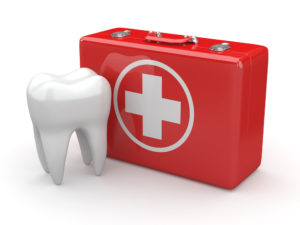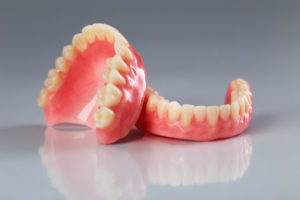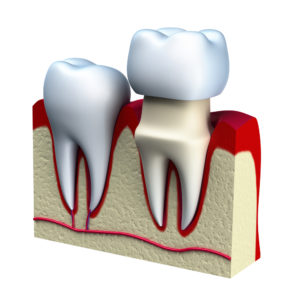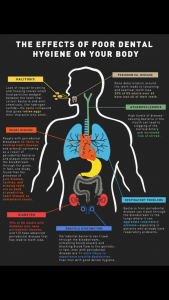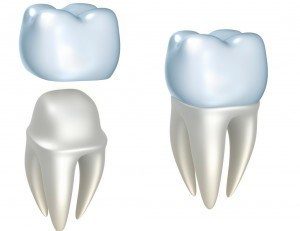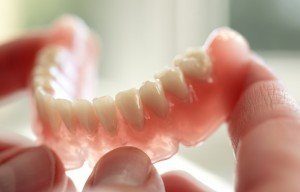Before a dental emergency ever happens, it’s important that you have a plan of action set in place to ensure you are well prepared. The first step in establishing this plan is finding a dentist you trust who can be reached after hours and provides same-day appointments. Unfortunately, not all emergencies occur during the waking hours when dental offices are open. Having a dentist available in such cases can provide peace of mind should an emergency happen.
In addition to finding a great dentist, there are certain steps that can be taken initially to help preserve your tooth. Below are common dental emergencies and what should be done to protect your smile.
Broken Tooth
Broken teeth can occur from contact sports, a facial injury, or simply from biting down on something too hard. If a piece of your tooth falls out, it’s important that the broken piece is placed in a container of saltwater or milk. In cases where neither is available, you can use your own saliva to protect the tooth. After calling our office, avoid touching the broken tooth with your fingers and take an over-the-counter pain reliever to help with any discomfort.
Loose or Knocked-Out Tooth
This type of injury often occurs with children during rough play, but can even happen to adults after a bad fall. If the tooth is loose, avoid touching it with your fingers or tongue. If the tooth completely falls out, pick the tooth up by the crown (the top portion) and avoid touching the roots of the tooth. Rinse the tooth in cool water and try placing it back into the socket and gently bite down.
In cases where the tooth cannot be positioned back into the socket, place the tooth in a container of milk, saltwater, or your own saliva. This will help preserve the tooth. If proper protocol is followed, in many cases a skilled dentist can save the tooth. Please call our office right away and take any pain relievers to minimize any discomfort. You can also place an ice pack on the outer jaw to reduce swelling.
Toothache
Tooth pain can occur for any number of reasons, such as:
- Tooth decay
- Abscessed tooth (severely infected tooth)
- Fractured tooth
- Teeth grinding
- Gum disease
- Damaged filling
- Food stuck between teeth
If pain is due to something caught between your teeth, you can use dental floss to try and dislodge it. Using anything other than floss could severely damage your teeth and gums. In cases where the tooth pain may be the result of an infection, you can rinse with warm saltwater and take a pain reliever to try and ease the discomfort while waiting for your appointment. If the tooth pain is a result of infection, it can enter your bloodstream and negatively affect your overall health. As soon as pain occurs, it’s important that you visit the dentist immediately.
Damaged or Defective Dental Restorations
If your filling, crown, bridge, or other type of restoration is damaged, place the broken pieces in a container and contact our office right away. You can rinse your mouth with warm saltwater and take a pain reliever to help with any pain or sensitivity. It’s also best to avoid chewing on that side of your mouth as it could cause even greater damage.


